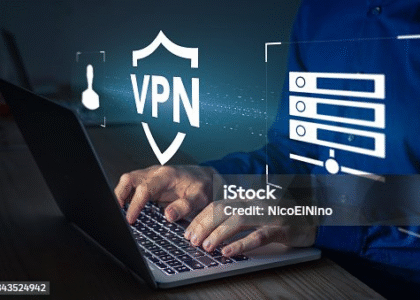In the competitive world of digital and creative agencies, success depends on one crucial factor — how effectively teams use their time. Every second counts when multiple projects, tight deadlines, and demanding clients come into play. Managing workloads, maintaining profitability, and delivering exceptional results require more than just talent — it demands precision, accountability, and smart time management.
That’s where agency time tracking software steps in.
Time tracking tools have evolved far beyond simple time logs. Today, they’re comprehensive platforms that help agencies streamline operations, improve productivity, and enhance profitability. This blog explores how time tracking software transforms team performance, strengthens collaboration, and drives business growth.
Understanding Agency Time Tracking Software
Agency time tracking software is designed specifically for organizations managing multiple clients and projects simultaneously. It enables teams to track work hours, monitor progress, and manage productivity — all in one platform.
Unlike traditional manual tracking methods or spreadsheets, modern time tracking software for agencies offers automation, analytics, and real-time insights that empower both employees and managers.
By combining time tracking with project management, invoicing, and performance analytics, these tools turn raw time data into actionable business intelligence.
Why Agencies Need Time Tracking Software
Agencies thrive on creativity, collaboration, and client satisfaction. But without proper time management, even the most talented teams can struggle to stay on track. Here’s why investing in a time tracking solution is a smart move for every agency.
1. Complex Workflows
Agencies handle numerous projects at once — each with its own deadlines and client expectations. A centralized time tracking system helps coordinate these workflows efficiently.
2. Remote and Hybrid Teams
Post-pandemic work models are here to stay. Time tracking tools ensure that productivity remains consistent — no matter where employees are working from.
3. Transparent Billing
Clients expect transparency. Time tracking software ensures you bill accurately for every hour worked, building credibility and trust.
4. Data-Driven Decisions
Detailed time reports reveal patterns in performance, helping managers make informed staffing, budgeting, and scheduling decisions.
How Agency Time Tracking Software Boosts Productivity
Time tracking software doesn’t just record hours — it optimizes how teams work. Let’s explore how it enhances productivity across the agency ecosystem.
1. Clear Visibility into Workloads
When managers have a real-time overview of what each team member is working on, they can assign tasks more strategically.
This eliminates overwork and underutilization, ensuring a balanced and efficient workload distribution.
For employees, having clarity on priorities reduces confusion and helps them focus on what truly matters — delivering great work on time.
2. Streamlined Project Management
Integrated time tracking tools often include project management features such as task lists, milestones, and progress bars.
Managers can monitor project timelines, identify delays, and allocate resources where needed.
This integration ensures that projects stay on schedule — improving accountability and client satisfaction.
3. Enhanced Employee Accountability
When employees log their hours, it creates a culture of ownership. They become more aware of how they spend their time and take proactive steps to improve efficiency.
With employee monitoring software like Time Champ, agencies gain productivity insights — helping teams stay focused without micromanagement.
4. Identifying and Eliminating Time Wasters
Time tracking data reveals how much time is spent on productive versus non-productive tasks.
For instance, if meetings or administrative tasks consume too many hours, managers can make adjustments to minimize time drains.
This insight-based optimization leads to higher productivity and smarter workflows.
5. Encouraging Healthy Work Habits
Contrary to common belief, time tracking isn’t about policing employees — it’s about supporting them.
When staff understand where their time goes, they can manage workloads better, avoid burnout, and maintain a healthy work-life balance.
6. Improved Team Collaboration
Many time tracking tools integrate with communication platforms like Slack, Asana, or Trello.
This helps teams stay connected, track collective progress, and collaborate seamlessly — even when working remotely.
When everyone is aligned and aware of timelines, productivity naturally increases.
Transforming Profitability with Time Tracking
Time tracking software doesn’t just make teams productive — it makes agencies profitable.
Here’s how:
1. Accurate Billing and Invoicing
Every agency knows the challenge of billing clients accurately, especially for projects with changing scopes.
With time tracking software, every hour is logged and billed transparently — ensuring clients pay for the actual work delivered.
This not only boosts revenue but also builds trust and long-term client relationships.
2. Improved Project Estimates
Analyzing past time data helps agencies predict future project timelines more accurately.
This ensures quotes and deadlines are realistic, reducing project overruns and scope creep.
Over time, this predictive accuracy leads to more profitable contracts.
3. Resource Optimization
Time tracking data reveals which employees are overworked and which have bandwidth.
Agencies can redistribute tasks to make the best use of available talent, reducing overtime costs and improving efficiency.
Efficient resource use directly contributes to higher profitability.
4. Identifying High-Value Clients
By reviewing time versus revenue reports, agencies can identify which clients bring the most value.
This allows them to prioritize profitable partnerships and negotiate better terms with time-consuming, low-yield clients.
5. Minimizing Revenue Leakage
Untracked hours lead to lost revenue.
Time tracking ensures every task — from brainstorming sessions to client calls — is accounted for, reducing leakage and maximizing billable time.
6. Better Financial Forecasting
With detailed time and cost data, agencies can project future revenue, staffing needs, and profitability trends.
This strategic visibility is invaluable for long-term planning and business growth.
Features That Make Time Tracking Tools Essential for Agencies
To truly transform productivity and profitability, the right agency time tracking software should include:
- Automatic Time Tracking: Captures activity without manual input.
- Project Management Integration: Links time logs directly with project tasks.
- Employee Monitoring: Ethically measures productivity trends.
- Real-Time Reporting: Gives instant visibility into team performance.
- Client Billing & Invoicing: Converts logged hours into accurate invoices.
- Analytics & Dashboards: Provides insights for strategic decision-making.
- Cloud & Mobile Access: Enables flexibility for hybrid and remote teams.
These features combine to create a transparent, efficient, and scalable work environment.
Top Agency Time Tracking Tools in 2025
Here are some of the best time tracking software solutions transforming agencies in 2025:
1. Time Champ
A leading employee monitoring and time tracking software designed for performance-driven agencies.
It offers real-time activity tracking, detailed productivity analytics, and project management integrations.
Best For: Agencies focused on transparency, accountability, and efficiency.
2. Harvest
A user-friendly tool that simplifies time tracking, expense management, and invoicing.
Best For: Agencies that prioritize client billing accuracy.
3. Clockify
A free, reliable option offering unlimited tracking for teams of any size.
Best For: Startups and small agencies needing affordability and flexibility.
4. Hubstaff
Combines productivity monitoring with GPS tracking and automated payroll.
Best For: Remote or hybrid agencies managing on-field and off-field staff.
5. Toggl Track
Known for its simplicity, Toggl provides beautiful reports and easy time logging.
Best For: Creative professionals who prefer minimalism and usability.
How Time Tracking Shapes Employee Experience
An often-overlooked benefit of time tracking software is its impact on employee morale and well-being.
When implemented correctly, time tracking:
- Promotes transparency and fairness
- Reduces workload stress
- Helps employees showcase their effort
- Encourages accountability without micromanagement
Agencies that value their team’s time foster stronger engagement, loyalty, and performance.
Overcoming Common Misconceptions
Some teams initially resist time tracking, viewing it as restrictive. However, modern time tracking and employee monitoring software is designed to empower, not control.
When introduced with clear communication and trust, it becomes a tool for support and improvement — not surveillance.
Key strategies include:
- Explaining the purpose clearly
- Emphasizing transparency and fairness
- Using data for positive reinforcement
- Recognizing productivity improvements
When handled ethically, time tracking strengthens relationships between management and staff.
The ROI of Time Tracking Software
Let’s quantify the value of using time tracking tools in agencies:
| Area | Without Time Tracking | With Time Tracking Software |
|---|---|---|
| Productivity | 60–70% | 85–95% |
| Billable Utilization | 65% | 90%+ |
| Missed Deadlines | Frequent | Reduced by 40–50% |
| Revenue Accuracy | 70–80% | 100% accurate |
| Employee Retention | Average | Significantly higher |
The data clearly shows that agencies using time tracking systems outperform those that don’t — both in productivity and profitability.
Best Practices for Implementing Time Tracking Software
To ensure success, agencies should follow these best practices:
- Get Employee Buy-In: Explain how time tracking helps them manage workloads, not monitor them unfairly.
- Start Simple: Begin with a small team and gradually scale across departments.
- Automate Reports: Use real-time dashboards to reduce manual admin work.
- Analyze Data Regularly: Review weekly or monthly insights for trends.
- Celebrate Improvements: Recognize employees for efficiency gains.
By following these steps, agencies can create a culture of accountability and continuous improvement.
The Future of Agency Time Tracking
As we move further into 2025, time tracking technology continues to evolve. The future includes:
- AI-driven productivity forecasting
- Predictive workload balancing
- Integration with AI project management tools
- Enhanced privacy and ethical data use
These innovations will make time tracking software even more essential for modern agencies striving for growth and balance.
Conclusion
Agency success in 2025 depends on mastering the most finite resource — time.
With the right agency time tracking software, teams can work smarter, deliver faster, and grow stronger.
By combining productivity tracking with data-driven insights, agencies unlock their full potential — maximizing profitability while fostering a culture of trust and efficiency.
Whether you choose Time Champ or another leading tool, the goal remains the same:
to transform time into your agency’s most powerful asset.






